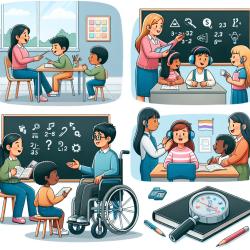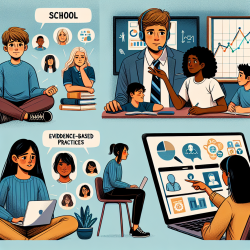Introduction: A Surprising Connection
In the world of speech-language pathology, we are always on the lookout for evidence-based practices that can enhance our therapeutic outcomes. Recently, a fascinating study titled Feasibility of motivational interviewing delivered by a glaucoma educator to improve medication adherence caught my attention. While the study focuses on glaucoma patients, the principles of motivational interviewing (MI) applied in the study can be adapted to improve outcomes in speech therapy, especially for children.
What is Motivational Interviewing?
Motivational interviewing is a counseling approach that aims to enhance a patient's motivation to change by exploring and resolving ambivalence. This patient-centered method has been shown to improve adherence in various health-related behaviors, including medication adherence, as demonstrated in the glaucoma study.
Applying MI in Speech Therapy
So, how can speech therapists utilize MI to enhance their practice? Here are some key takeaways from the study and how they can be translated into the field of speech-language pathology:
- Patient-Centered Approach: Just like the glaucoma educator, speech therapists can adopt a patient-centered approach, focusing on the child's unique needs and motivations.
- Building Rapport: Establishing a strong rapport with children and their families is crucial. MI emphasizes empathy and understanding, which can lead to better engagement and cooperation in therapy.
- Enhancing Motivation: By exploring a child's interests and goals, therapists can tailor interventions that resonate with the child, thereby increasing motivation and adherence to therapy.
- Overcoming Barriers: Identifying and addressing barriers to therapy participation, such as scheduling conflicts or lack of understanding, can improve adherence and outcomes.
Encouraging Further Research
While the study provides a promising framework, more research is needed to explore the direct application of MI in speech therapy. Practitioners are encouraged to conduct pilot studies and share their findings to build a robust evidence base.
Conclusion: A Call to Action
The use of motivational interviewing in the glaucoma study highlights the potential for cross-disciplinary learning and innovation. As speech therapists, we can draw inspiration from this research to enhance our practice and create better outcomes for the children we serve.
To read the original research paper, please follow this link: Feasibility of motivational interviewing delivered by a glaucoma educator to improve medication adherence.










